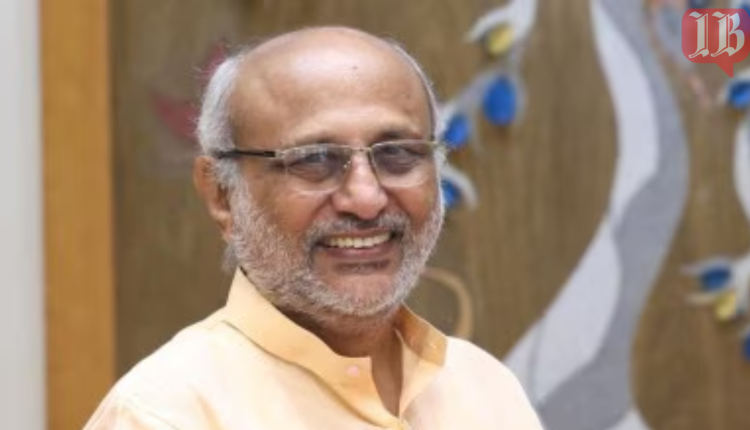Chennai: In a resounding triumph for the National Democratic Alliance (NDA), C P Radhakrishnan, a seasoned BJP leader and Maharashtra Governor, was elected India’s 15th Vice-President on Tuesday, securing 452 votes in a high-stakes parliamentary poll.
The 67-year-old, whose political journey began as a teenage RSS volunteer in Tamil Nadu, outshone the Opposition INDIA bloc’s candidate, Justice B Sudershan Reddy, who garnered 300 votes.
Radhakrishnan’s ascent is a masterstroke by the NDA, blending grassroots loyalty with administrative acumen to cement its dominance in the Upper House, where he will now serve as ex-officio Chairman.
Born in Tiruppur, Tamil Nadu, Radhakrishnan’s story is one of relentless dedication. At 17, he joined the Rashtriya Swayamsevak Sangh (RSS), imbibing its disciplined ethos, and later aligned with the Bharatiya Jana Sangh, the BJP’s precursor. His electoral breakthrough came in 1998, winning the Coimbatore Lok Sabha seat amid the shadow of serial bomb blasts — a victory that marked the BJP’s first significant foothold in Tamil Nadu, bolstered by an AIADMK alliance. Re-elected in 1999 under Atal Bihari Vajpayee’s regime, he served on key parliamentary committees, including textiles and finance, showcasing his knack for policy detail. Even in defeat during the 2004, 2014, and 2019 elections, his 3.89 lakh votes in 2014 underscored his regional clout.
Radhakrishnan’s career is a tapestry of diverse roles. As Tamil Nadu BJP president from 2004 to 2007, he led a 93-day, 19,000-km ‘Ratha Yatra’ to champion causes like river-linking and anti-terrorism, earning him the moniker “Vajpayee of Coimbatore” for his oratorical finesse.
From 2016 to 2020, as Chairman of the Coir Board, he drove exports to a record ₹2,532 crore, proving his administrative mettle. His stint as BJP’s Kerala in-charge (2020-2022) further honed his organisational skills, navigating the state’s complex political terrain. Appointed Jharkhand Governor in 2023, he toured all 24 districts in four months, prioritising tribal empowerment, before taking charge as Maharashtra’s 24th Governor in July 2024, where his cooperative stance won cross-party respect.
Tuesday’s election, triggered by Jagdeep Dhankhar’s abrupt resignation in July 2025, saw Radhakrishnan’s Tamil heritage and RSS roots resonate with MPs, especially in the south. The NDA’s 422-strong parliamentary base, plus support from neutrals like YSR Congress, ensured a comfortable win, though whispers of 20 Opposition cross-votes added a twist. Radhakrishnan’s affable, non-confrontational style — contrasting Dhankhar’s combative tenure — promises a smoother Rajya Sabha tenure, a critical role amid rising government-Opposition tensions. “His humility and intellect will elevate parliamentary discourse,” Prime Minister Narendra Modi tweeted, echoing sentiments from Amit Shah, who praised his grassroots connect.
For the INDIA bloc, the defeat stings, with Reddy’s loss exposing internal rifts. Yet, Radhakrishnan’s elevation offers a fresh narrative: a southern leader in a national role, potentially softening BJP’s image in Dravidian heartlands ahead of 2026 state polls. Considering the RSS’s quiet influence that has reshaped BJP’s ascent since the 1990s, his selection feels like a nod to the Sangh’s enduring sway, balancing ideology with pragmatism.
As India’s youth demand transparent governance, could Radhakrishnan’s tenure inspire digital reforms, like blockchain voting to curb cross-voting? Only time will tell.



Comments are closed.